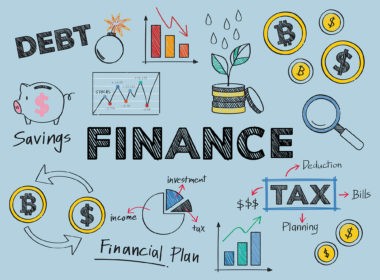For business leaders and policymakers navigating today’s complex landscape, the consulting industry has become an indispensable partner in transformation. The global consulting market reached a remarkable $1.8 trillion in 2023, reflecting the industry’s dramatic growth since 2020. This expansion has been driven by increasing market complexity, digital transformation demands, and the rising importance of sustainability-focused strategies.
The New Face of Consulting
From corporate boardrooms to government agencies, the consulting landscape is evolving rapidly. Public sector strategy consulting has emerged as a central focus as governments work to modernize operations and deliver better services to citizens. With the U.S. consulting workforce expanding to 840,000 professionals in 2023, the industry is responding to unprecedented demand for expertise in both private and public sectors.
This transformation reflects a fundamental shift in how organizations approach growth and value creation. The average revenue per management consultant reaching $212,000 in 2023 demonstrates the premium placed on strategic expertise that bridges traditional business objectives with broader societal impact.
Beyond the Bottom Line
This shift reflects the growing demand for consultants who can balance traditional business goals with the urgent need for societal and environmental accountability. Today’s consulting innovations focus on three key areas:
Strategic Innovation with Purpose
Modern strategy consulting extends beyond profit optimization to encompass sustainable value creation. Successful consultants help organizations identify opportunities where compliance and competitive advantage intersect, particularly in areas like carbon reduction and circular economy initiatives.
Stakeholder Symphony
The best consultants today are like master conductors, orchestrating harmony between different stakeholders. This is especially evident in public-private partnerships, where consultants help align business objectives with public sector requirements, ensuring both efficiency and public value. Whether it’s modernizing healthcare delivery systems or implementing smart city initiatives, successful projects require careful balance of multiple stakeholder interests.
Sustainable Growth Architecture
With the strategy consulting market projected to reach $79.90 billion by 2032, firms are investing heavily in sustainability expertise. This growth trajectory reflects the increasing complexity of balancing economic returns with environmental and social responsibilities.

Making It Work: The Practical Side
For organizations seeking to thrive in this new landscape, successful consultants recommend these integrated approaches:
Start with Crystal Clear Goals
Define measurable targets that align business growth with broader impact metrics. This means going beyond traditional KPIs to include sustainability benchmarks and stakeholder value creation measures.
Make Sustainability Your Superpower
Transform regulatory requirements into competitive advantages by investing in innovative sustainable practices. Organizations leading in this space are finding that early adoption of sustainable practices opens new market opportunities.
Keep the Conversation Going
Build dynamic stakeholder engagement processes that inform strategy development and risk management. Regular dialogue helps organizations stay ahead of emerging trends and regulatory changes.
Stay Flexible
Develop adaptive strategies that can evolve with changing market conditions and stakeholder expectations. The most successful organizations maintain agility while staying true to their core purpose.
Looking Ahead: The Next Chapter in Consulting
The consulting industry stands at a pivotal moment. North America and Europe continue to represent the largest regional markets, but growth patterns suggest an increasingly global transformation in how businesses approach strategic challenges. The industry’s expansion between 2020 and 2023 underscores a fundamental truth: organizations need external expertise more than ever to navigate complexity while maintaining their commitment to sustainable practices.
As we look toward 2032, the projected 5.70% CAGR in strategy consulting signals sustained demand for expertise that bridges business excellence with societal impact. The most successful consultants will be those who can help organizations thrive at the intersection of profit and purpose, particularly in areas where public and private sector interests converge.
In Conclusion
The future of consulting lies not just in solving today’s challenges, but in helping organizations anticipate and shape tomorrow’s opportunities. Those who can navigate this complex landscape – balancing stakeholder interests, sustainability requirements, and growth objectives – will not only survive but lead the next wave of business transformation.












